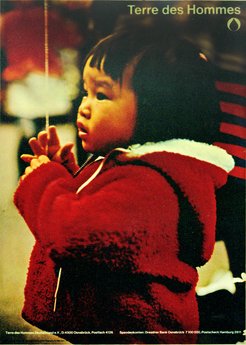Adopting a Child in Germany
Contested Politics of Belonging and Care in a Globalizing World (1945-2000)
Bettina Hitzer

The question of who belongs to which family, ethnic or religious group, or state is highly contested. The focus of today’s politics on refugees and the worldwide rise of isolationist, nationalist, and identitarian parties provide an example of how heated this issue can be. Throughout the entire twentieth century, however, debates on belonging played an important role, and the tumult makes it easy to overlook the fact that these debates had an intimate dimension. This dimension is the object of my research project investigating the history of child adoption in both Germanys – West and East. While taking the history of child adoption in Weimar and Nazi Germany into account its focus is on the post-1945 period.
The project explores the shifts in defining intimate and collective belonging in a globalizing world. Its aim is to reveal how belonging and associated emotions were produced and it seeks to explore how humanitarian arguments influenced them. Disputes over the adequate care of children placed knowledge about childhood and parenting at the centre of transnational negotiations and scientific research. The influence of biology, culture, memory, and traumatic experiences on the formation of identity was a controversial issue. Child adoption became a transnational phenomenon in the second half of the 20th century. That is why the project also aims to unravel the transnational entanglements of German child adoption. By doing this, the project will open insights into the diverse ways that religion, ideology, and nation influenced structures, concepts, and practices of family, belonging, care, and identity.
The project draws on a wide range of sources, from administrative records, documents from adoption agencies, advice books, child literature, articles in scientific journals from the fields of psychology, psychiatry, and social work as well as ego-documents. Part of the study is based on oral history interviews.
